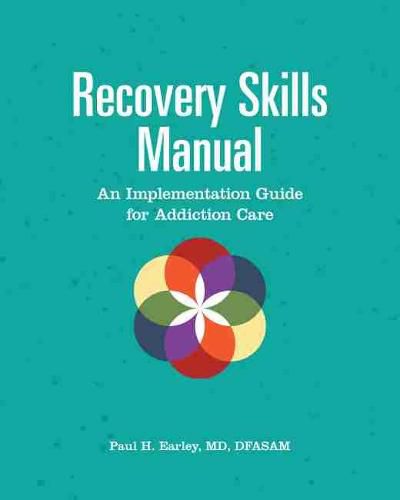Readings Newsletter
Become a Readings Member to make your shopping experience even easier.
Sign in or sign up for free!
You’re not far away from qualifying for FREE standard shipping within Australia
You’ve qualified for FREE standard shipping within Australia
The cart is loading…






A cohesive addiction treatment model based upon the concept that addiction recovery is a learned skill.
This step-by-step guide designed is drawn from the basic concepts found in Dr. Earley’s Recovery Skills Manual: A Neuroscientific Approach to Treating Addiction. It is designed to help practitioners implement RecoveryMind Training (RMT) in outpatient practice (ASAM Level 1), IOP (Level 2.1), Partial Hospitalization (Level 2.5), or Residential program (Levels 3.1 to 3.7).
To be successful, the learning involved in recovery has to overcome the complex and hard-wired entrainment produced by the use of highly reinforcing drugs, including alcohol. The RMT model describes the dynamics of active addiction with regard to its effects on the brain–motivations, drives, memories, and cognitive distortions–with the term Addict Brain. Recovery is facilitated through the learning of a structured set of skills that promote changes in thoughts, beliefs, and actions, and bring about Recovery Mind.
$9.00 standard shipping within Australia
FREE standard shipping within Australia for orders over $100.00
Express & International shipping calculated at checkout
A cohesive addiction treatment model based upon the concept that addiction recovery is a learned skill.
This step-by-step guide designed is drawn from the basic concepts found in Dr. Earley’s Recovery Skills Manual: A Neuroscientific Approach to Treating Addiction. It is designed to help practitioners implement RecoveryMind Training (RMT) in outpatient practice (ASAM Level 1), IOP (Level 2.1), Partial Hospitalization (Level 2.5), or Residential program (Levels 3.1 to 3.7).
To be successful, the learning involved in recovery has to overcome the complex and hard-wired entrainment produced by the use of highly reinforcing drugs, including alcohol. The RMT model describes the dynamics of active addiction with regard to its effects on the brain–motivations, drives, memories, and cognitive distortions–with the term Addict Brain. Recovery is facilitated through the learning of a structured set of skills that promote changes in thoughts, beliefs, and actions, and bring about Recovery Mind.